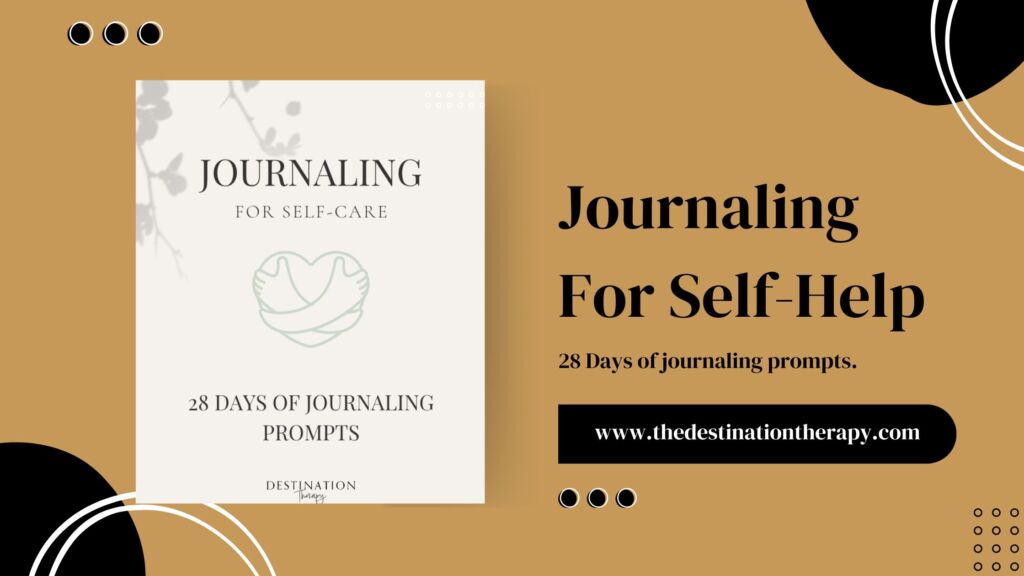At one point or another, most individuals have longed for the companionship of a partner. Where so many of us get stuck, however, is in how to go about seeking potential partners. We can feel so trapped in the mentality that it is so hard to find a partner, when in reality we have more access to potential partners now than ever! The dilemma comes down to our own preference.
In an era where technology is so intertwined with our daily lives, the search for love has evolved dramatically. The age-old tradition of meeting someone organically at social events or through mutual connections faces competition from the digital realm of online dating. Both avenues offer unique opportunities for forging connections, but each comes with its own set of advantages and challenges. Ultimately, there is no right or wrong way to date. Whether we choose to date online or meet people organically, it all comes down to personal preference, comfort levels, and intentionality.
Table of Contents

Evolution of Dating Practices
Dating practices have transformed significantly over the years, reflecting societal changes and technological advancements. Let’s talk about the progression from traditional dating and the rise of online dating platforms –
Traditional Dating Methodologies
“Traditional dating” involves face-to-face interactions, often initiated in social settings like schools, workplaces, or community events. Family and friends can sometimes play crucial roles by introducing potential partners. Romantic relationships are often developed over time, with an emphasis on long-term commitment. Cultural values can also influence dating, with many societies expecting formalities like parental approval and traditional gender roles where men largely take the initiative to ask women out and bear the costs of dates.
Rise of Online Dating Platforms
The advent of the internet introduced a new paradigm for dating. Online dating platforms emerged in the late 1990s, allowing individuals to connect beyond their immediate social circles.
In dating apps, you create your own profile displaying pictures of yourself, usually paired with prompts to display your values and personality. Varying apps provide various communication tools, such as messaging and video chats, enabling users to interact before meeting in person. The anonymity of online dating can reduce pressure, leading to more straightforward conversations.
While online dating offers convenience, it also presents challenges like misrepresentation and a greater volume of choices, which can complicate decision-making.
Technological Influence on Dating Trends
Technology has significantly shaped modern dating, influencing how individuals connect and form relationships. From mobile apps to social media, the landscape of romance has evolved rapidly, impacting user experiences and expectations.
Innovation and Future Predictions
Various dating apps have introduced innovative features, such as algorithms that match users based on interests and behaviors. These advancements help streamline the search for potential partners, making it easier to find compatibility.
Emerging technologies, like artificial intelligence and virtual reality, are expected to further transform the dating scene. For instance, AI could provide personalized suggestions, while VR might allow users to experience virtual dates, enhancing connection before meeting in real life.
Predictions suggest that inclusive platforms will gain traction, accommodating diverse identities and preferences. This shift reflects an increased emphasis on representation and personalization in dating contexts.
Privacy, Security, and Ethical Aspects
The rise of online dating brings critical concerns about privacy and security. Users must navigate risks related to data breaches and personal information exposure. Many platforms implement encryption and user verification methods to enhance safety.
Ethical considerations also play an important role in the technology-driven dating landscape. Issues such as consent, data usage, and algorithmic bias are relevant. Platforms are encouraged to be transparent about data practices and offer users control over their information.
As technology evolves, the balance between innovation and ethical practices will be crucial in fostering a safe dating environment. Ensuring privacy and security while enhancing user experience remains a vital focus for dating platforms.
Comparing Online Dating vs. In-Person Dating
Pros of Online Dating
- One significant advantage of online dating in comparison to traditional dating is the sheer convenience it offers. Users can explore multiple profiles from the comfort of their homes, making connections at any time.
- Online dating also allows users to meet people outside of their immediate social circles, expanding opportunities for finding compatible partners who they might not have otherwise met organically!
- Users can typically filter matches based on criteria such as age, location, and other features. This targeted approach can save time and increase chances of a meaningful connection (Though dating apps have made a consistent shift into making these features a paid/membership perk as opposed to a free feature).
Cons of Online Dating
Whether we’re discussing online dating or in person dating, each option is going to come with its unique set of barriers or risks. When it comes to online dating, misrepresentation of any sort is the biggest risk users may face.
-
Users may encounter profiles created with deceptive intentions. While dating apps have created extra steps to verify a person’s identity to reduce the number of catfishers (fake profiles), users still face the risk of matching with a person who may be using fake pictures of information to pretend to be someone that they are not.
-
The wider pool of potential matches can remove the humanity of the process, with users focusing more on the “chase” and dopamine of matching with as many people as possible as opposed to matching with potential partners intentionally.
-
Hopefully, this goes without saying, but a big risk of online dating is that, well, you do not know the person you’re meeting! Caution is essential when considering taking your conversation off the dating app with a person.
Pros of In-Person Dating
- Engaging in traditional outings allows individuals to experience genuine social interactions. These environments encourage people to present their true selves, which can be more challenging in digital settings.
- Face-to-face communication helps to build rapport quickly through body language and tone of voice. Such cues often reveal emotions and intentions that might remain hidden in text messages. Authenticity enhances the likelihood of forming meaningful connections, as participants engage with each other without the filters of online profiles.
- traditional outings create opportunities for shared experiences, such as activities or events. These experiences allow participants to bond over common interests in a natural setting, creating memories and potential connections.
Cons of In-Person Dating
- One of the bigger barriers to traditional dating includes time and money. Many adults may struggle to set aside the time to attend events or public spaces where they may or may not meet a potential partner. People may also find that this process is costly, as most events and activities are not free.
- Putting yourself out there can be scary! Many people prefer online dating to traditional dating because of the removed barrier of having to face someone in person, lessening their symptoms of social anxiety.
- Fear of rejection is also real! Rejection can feel more personal and immediate in person. The direct nature of face-to-face interactions might make it more uncomfortable when someone isn’t interested.

Long-Term Relationship Success Rates
The success rates of long-term relationships can vary significantly between those formed online and those initiated through traditional means. Understanding these statistics helps individuals assess their options when seeking lasting connections.
Statistical Outcomes of Relationships
Research indicates that approximately 30-40% of online relationships progress to long-term commitments such as marriage. Out of these couples, about 20% end in divorce within the first five years.
In contrast, traditional relationships, initiated through friends or social settings, have shown slightly higher success rates. Studies reveal that about 50% of these relationships lead to long-term partnerships, with a divorce rate of nearly 10% within the same timeframe.
Factors influencing these outcomes include communication styles, compatibility assessments, and the initial motivations for forming relationships. As always, keep in mind that these statistics are just that – statistics! While they represent patterns and trends, it does not mean that online dating should be feared.
Sustaining Relationships Founded Online Versus Offline
Online relationships require effective communication to bridge gaps created by physical distance. Couples who connect through dating sites often share clear expectations early on, which can enhance relationship quality.
Offline couples may benefit from shared social circles and activities that foster deeper understanding and emotional connections. These interactions provide face-to-face experiences, contributing to relationship resilience.
Challenges exist for both types. Online relationships may struggle with trust issues and miscommunication, while offline relationships can face pressure from social environments. Ultimately, the commitment level of individuals plays a crucial role in determining the longevity of both relationship types.
Cultural and Social Considerations
Another important aspect to consider in modern dating are the cultural and social norms around dating. The methods by which individuals seek romantic relationships reflect deep-seated cultural norms and social expectations.
Cultural Acceptance of Dating Methods
Cultural perspectives on dating methods influence individuals’ choices. In many Western societies, online dating has gained significant legitimacy, with platforms tailored for various preferences. This method is often viewed as modern and practical, catering to busy lifestyles.
Conversely, traditional methods, such as meeting through friends or in social settings, still hold value in many cultures. These approaches emphasize communal values and may be preferred in societies where familial approval is significant.
Acceptance of online dating can also vary by age group, with younger generations more inclined to embrace digital platforms while older individuals may favor face-to-face interactions. This generational divide illustrates how cultural context shapes dating preferences.
Impact on Social Skills and Development
Engaging through online dating can influence the development of essential social skills. While it offers convenience, it may limit face-to-face interactions. Digital communication often lacks non-verbal cues, which are vital in building rapport.
Conversely, traditional dating encounters promote interpersonal skills. Meeting in social situations fosters active listening, empathy, and real-time communication. These skills are crucial for forming strong connections.
Furthermore, reliance on technology may lead to reduced confidence in face-to-face interactions. Individuals may find it challenging to initiate conversations in real-life situations, as online platforms can create a barrier to developing essential social dynamics. Balancing both methods can enrich one’s social experiences.
Conclusion
In the debate of online dating versus traditional dating, each method has its value.
Online Dating:
- Offers convenience and accessibility.
- Provides a wide variety of potential matches.
- Allows filtering based on specific criteria.
Going Out:
- Enables face-to-face interaction.
- Encourages more organic connections.
- Facilitates shared experiences in natural settings.
Some individuals thrive in the online dating environment, while others prefer meeting in person. It truly comes down to personal preference, and as already specified (but it could not be emphasized enough!), there is no right or wrong way to date. Dating is dating! When considering which method may feel more appropriate for you, just make sure to consider your personal comfort with technology, your preference for spontaneous interactions, and – of course– what your goals are in dating!
When to Seek Help
Destination Therapy provides a safe space to communicate openly, address challenges, and revisit past experiences that lead to double-guessing your approach to dating and long-term relationships. We can match you with one of our therapists, who will be able to help with your concerns.
If you’re ready to explore therapy, we offer a free 15-minute consultation call to discuss your needs and see if couple therapy is right for you.


